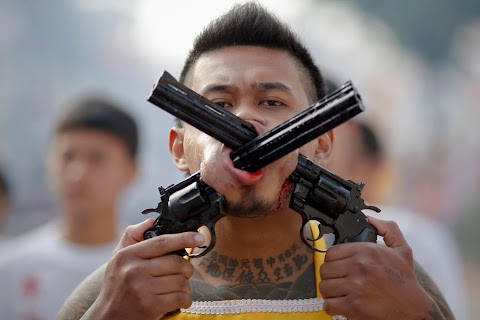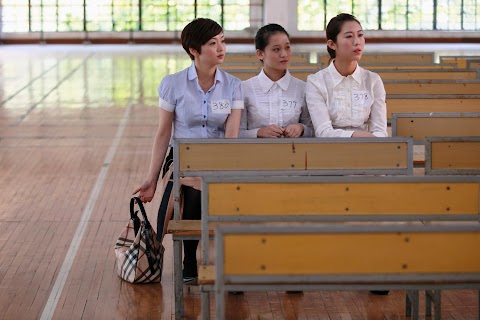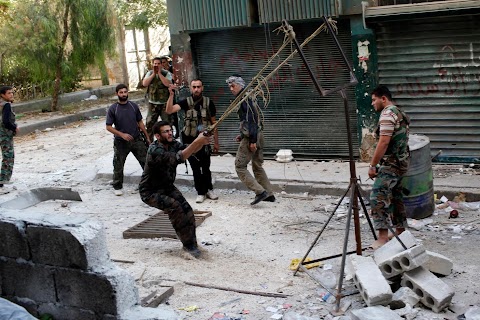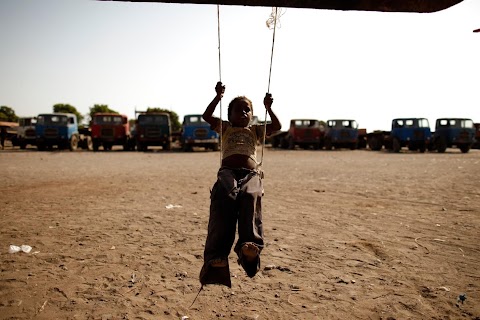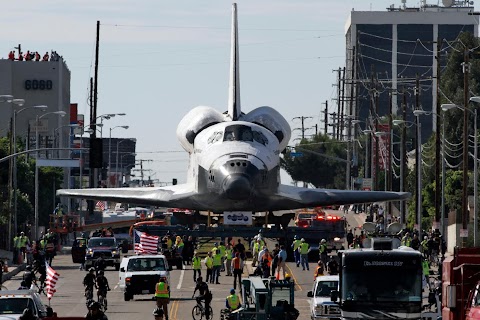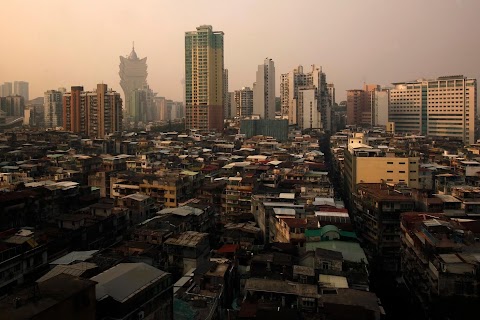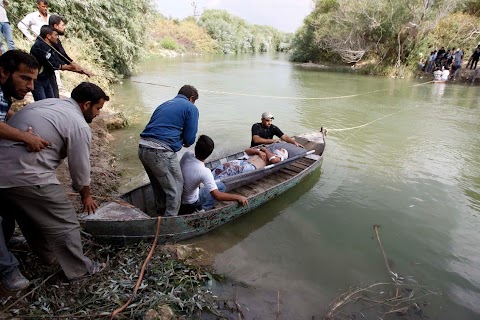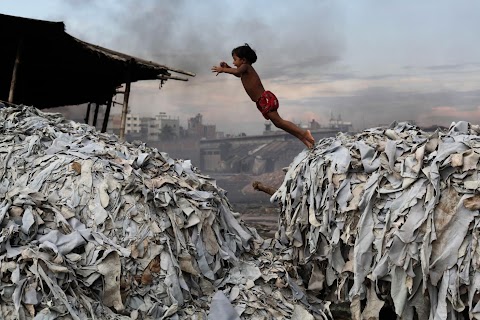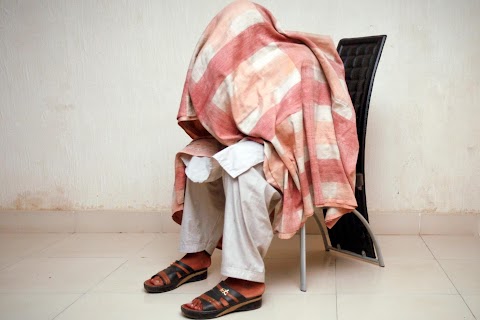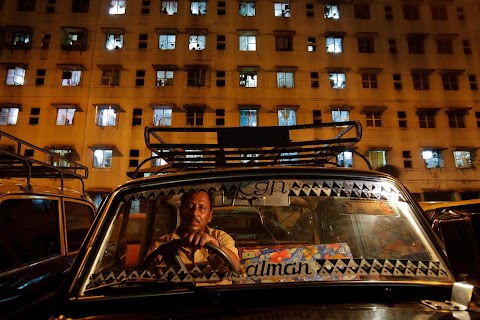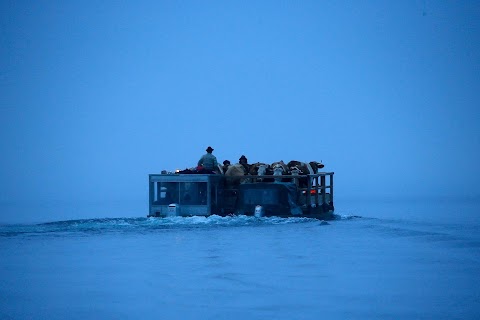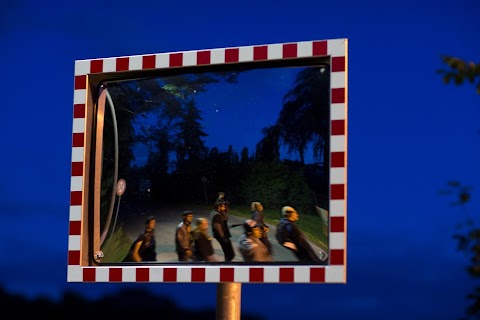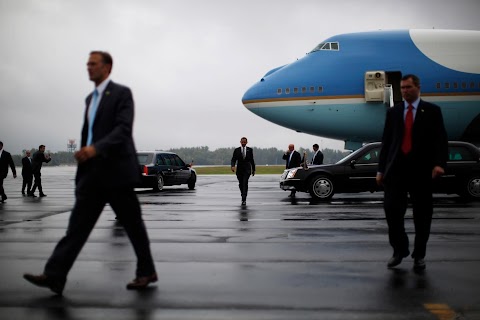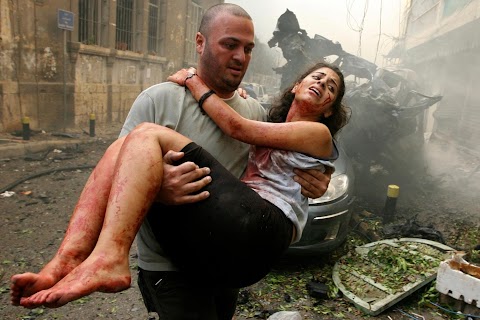
A bomb victim's story
 Hasan Shaaban
Hasan Shaaban
On October 19 a massive car bomb was detonated in Beirut killing a top Lebanese intelligence official along with seven others. Much was written about the intelligence officer, Brigadier-General Wissam al-Hassan, but Reuters photographer Hasan Shaaban decided to find out more about another victim of the violence – the young woman pictured in this photograph. Along with Reuters journalist Maria Semerdjian, he set out to trace her and discover her story.

After a painstaking search, Shaaban and Semerdjian managed to find the injured young woman, who was being treated at the Lebanese Canadian Hospital, where this picture was taken. It turned out that she was a student named Joziane Shedid, and her sister had also been hurt in the blast.
Joziane agreed to talk about her experiences. “This incident will not make me hate my beloved country of Lebanon. But I can’t deny that I am scared of my neighbourhood and of Beirut,” she said.

Shaaban and Semerdjian later went to see Joziane at university. She explained her feelings further: “I am glad I managed to survive and am trying to overcome the shock over time. I can’t lie and I can’t pretend that this experience didn’t have an effect on me because it did. But it was an indirect lesson for me to keep my faith and strength and carry on going, no matter what happens in life.”
Slideshow

A firefighter tries to put out the blaze at the scene of the explosion in central Beirut.

The blast killed Wissam al-Hassan, a prominent Lebanese intelligence official opposed to Syrian President Bashar al-Assad.

The attack heightened concerns that Syria's civil war was dragging its volatile neighbour into the conflict.

The bombing was the most serious to hit the capital since the 2005 assassination of former Lebanese prime minister Rafik al-Hariri.

A total of eight people were killed by the blast, which also wounded over 80.

A woman is helped by a Lebanese soldier after the explosion.

Relatives comfort a wounded woman at the site of the blast.

Lebanese civilians and members of the civil defence carry an injured man after the explosion.

Lebanese Red Cross and civil defence personnel work at the site where the car bomb went off.

Lebanese policemen shout as they secure the area.

Investigators work at the site of the bomb.
“I felt like it was the end of the world.”
Joziane Shedid - that was her name.
After a difficult search, we had managed to identify the blood-soaked young woman in a picture taken by Reuters photographer Hasan Shaaban in the wake of a powerful bomb explosion in Beirut.
We found it difficult to identify the girl because at first we didn’t realise she was the older sister of Jennifer Shedid, another bomb victim Hasan photographed that fateful day, who was even more severely injured and almost lost her life.
We searched from clinic to clinic and finally found out that the young woman we were looking for was at the Lebanese Canadian Hospital. When we arrived, we saw Jennifer’s mother and asked if she knew the girl from the photograph. “That’s my daughter,“ she replied immediately, and pointed over at Joziane.
The dark-haired young woman was sitting there with members of her family, a cross around her delicate neck and a picture of the Virgin Mary in her frail hands. She welcomed us with a generous smile and Hasan and I went with her into another room to hear about her experience.
“I have told this story many times to different people in my family, but each time I retell it, I have a different impression. I realise that sometimes I forget information, which I think is important for people and the press to know,” said Joziane. “I want to be as detailed as possible so people know what really happened to us.”
Joziane told us that the bomb went off while she was at home with her cousin Joseph, waiting for her sister Jennifer to sit down to lunch.
Suddenly, said Joziane, she found herself on the floor covered with the wreckage of a glass display case and with debris from the roof. “I felt like it was the end of the world,” she recalled.
She couldn’t feel her feet, which were already weak because she had had surgery on them for a skiing injury. But that didn’t matter. With "God’s strength", said Joziane, she moved at a snail’s pace to get out.
In that moment, she said, all her concern was for Jennifer and Joseph. Pain left her and she was fully conscious of what was going on, but as she looked around she couldn’t see or hear any trace of her sister.
She struggled to stand up, and saw her cousin covered with stones. Joziane started to yell, telling him to try his best to get out, because she desperately wanted to make sure that Jennifer was all right.
Then, in a horrible moment, she saw her little sister, silent and covered in blood. At that point, said Joziane, she heard a second explosion go off but she couldn’t care less.
Joziane went over to Jennifer just to hold her hand and make her feel that there was someone with her. She tried to clear away the debris and glass and chatted meaninglessly, simply to keep her sister conscious and let her know someone was there.
This was the scene the girls’ father found when he came back from shopping for groceries. His face was a mask of horror.
“Father please just save Jennifer,” Joziane started to scream. The little girl was shivering, she had lost huge amounts of blood. Finally, the sisters managed to leave the building with the help of security officers and neighbours.
Joziane remembered someone carrying her, trying to save her from the fire that the bomb had ignited. That was the moment that Hasan caught on camera.
Now in hospital, Joziane looked back on the traumatic experience. “This incident will not make me hate my beloved country of Lebanon. But I can’t deny that I am scared of my neighborhood and of Beirut.”
Yet she stayed defiant, saying that if the individuals who had set off the explosion thought they could turn the Lebanese people against one another, then their attempt had failed.
“Our faith is stronger than their cruel plans,” she declared.
Others seem to feel more fear. Hasan and I sought out the man who had carried Joziane to safety, and we asked to take another photograph of the two of them in the same place. At first the man agreed, but when we arrived with Joziane at the spot where Hasan had taken the original image, he changed his mind. The picture might get him into trouble, he said.
(Reporting by Maria Semerdjian, editing by Hannah Vinter)
